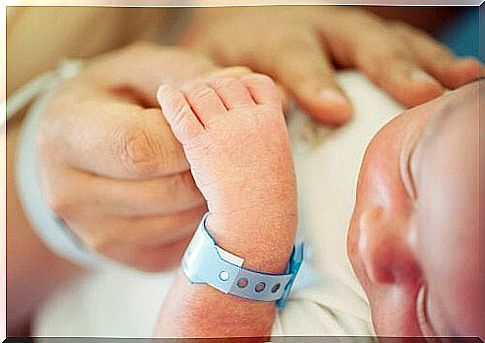Skeletal Development During The First Months Of Life

Are you interested in knowing more about the development of the skeleton in your child during the first period of life? The baby’s skeleton is already formed in the womb as the fetus develops.
The bones begin to develop in the 15th to 20th week of pregnancy. The bone structure is fully developed in the seventh month of pregnancy.
In the seventh month of pregnancy, the fetus has fully developed, soft and flexible legs that enable a comfortable position in the abdomen for the time remaining until delivery.
The development does not end there. After birth, the skeleton continues to develop at a rapid rate.
Skeletal development during growth
An infant’s skeleton consists at birth of 270 bones. These numbers change a little as we grow as some bones in the head grow together and other bones are added in the ankles. By adulthood, we have a total of 206 bones in the body.
The skeletal system develops throughout our lives. However, the development of the skeleton during the first months of life is different as it happens at an incredibly fast pace.
This is especially true during the first two years of life. The bones are formed by blood vessels, nerves, collagen and living cells, so-called osteoblasts. Osteoblasts form the bones and osteoclasts provide nutrition.
These living cells are a contributing factor to the skeleton having a constant opportunity for reconstruction. Osteoclasts get rid of old bone cells and replace them with new bone tissue that is more resistant.
This allows our body to grow. A person’s development can be affected by several aspects from the birth itself.
Circumstances that may affect skeletal development during the first months of life
1. Gener
Genetic potential is hereditary factors that have an impact of up to 80% of the child’s development, as long as it is not affected by external factors.
This means that if the child has long parents, there is a good chance that their children will also be tall. This is the same if the parents are small. This factor begins to affect the development of children from the age of two.

2. Food and nutrition
A crucial importance for fetal development is food and nutrition.
A balanced diet during pregnancy will ensure that nutrients are transferred through the placenta. This is directly related to fetal growth and metabolism in the future.
After birth, the infant should be breastfed until 6 months of age. During breastfeeding, the mother’s diet should be balanced in order for the baby to absorb all the nutrients for its development through breast milk.
As the baby grows, it will need a supplemental diet to meet their needs.
Tenderness
This is crucial for the child’s growth. It has been proven that children who have not had any tenderness grow more slowly.
This is probably because they are depressed, stressed and anxious. This can have a far-reaching effect on the brain and cause high production of a hormone called somatostatin.
Somatostatin affects the secretion of growth hormone needed for the best possible development.
4. Sleep
Rest is incredibly important for growth. The largest production of growth hormones takes place during the night. This is why it is recommended that children go to bed early.
5. Physical activity
Physical activity helps the body and brain to stay in shape. Toddlers need to move to make their skeleton and muscles more resilient.
Children should spend at least half an hour outdoors each day.

Physical activity also keeps the body in shape. Sunlight is also an important factor in children’s development. It allows the body to assimilate vitamin D which is important in the growth and proper development of the bones.
Meet all needs for skeletal development
Finally, the development of the skeleton during the first months of life is an important part of the infant’s personal development.
During this period and for the rest of their lives, the parents should meet all the necessary needs for the process to continue as it should.









